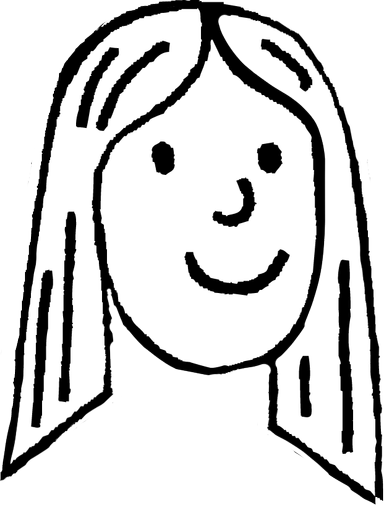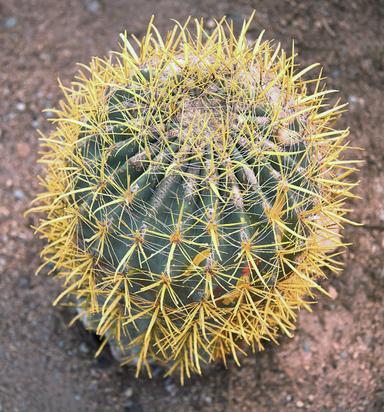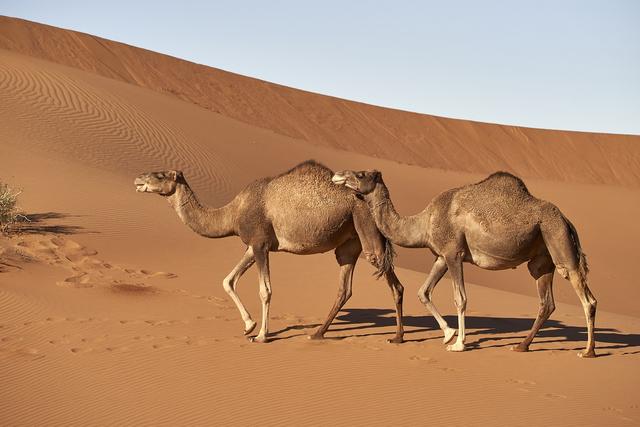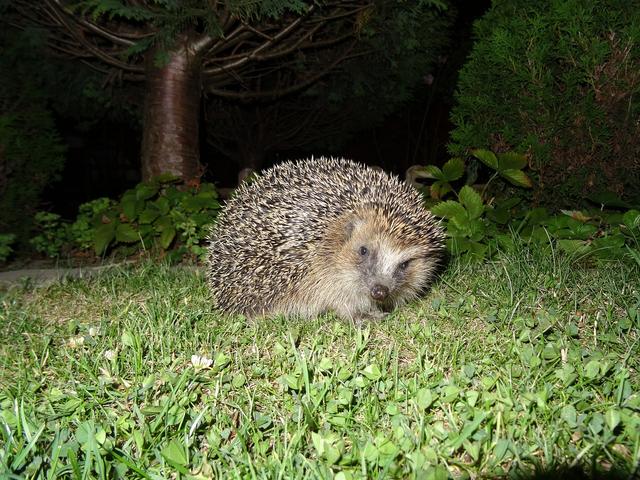Myths about teaching can hold you back
- Year 8
Animals are adapted for their environment
I can describe how some animals are adapted to help them survive, and how environmental conditions affect animal biodiversity.
- Year 8
Animals are adapted for their environment
I can describe how some animals are adapted to help them survive, and how environmental conditions affect animal biodiversity.
These resources were made for remote use during the pandemic, not classroom teaching.
Switch to our new teaching resources now - designed by teachers and leading subject experts, and tested in classrooms.
Lesson details
Key learning points
- Animals have adaptations that help them to survive in their environment.
- Some adaptations are physical, such as thick fur.
- Some adaptations are behavioural, such as being nocturnal.
- Changes in the environment can affect animal biodiversity.
Keywords
Biodiversity - Biodiversity is the range of different living species that live in a place.
Adaptation - An adaptation is a feature that organisms have to help them live in a particular place.
Extinction - Extinction is the permanent loss of a species.
Conservation - Conservation is the process of protecting biodiversity and the environment.
Common misconception
Pupils often believe that biodiversity is the number of organisms that live in a place, rather than the number of different species that live in a place.
There is extensive coverage in the lesson around biodiversity being the range of species that are found in an area.
To help you plan your year 8 science lesson on: Animals are adapted for their environment, download all teaching resources for free and adapt to suit your pupils' needs...
To help you plan your year 8 science lesson on: Animals are adapted for their environment, download all teaching resources for free and adapt to suit your pupils' needs.
The starter quiz will activate and check your pupils' prior knowledge, with versions available both with and without answers in PDF format.
We use learning cycles to break down learning into key concepts or ideas linked to the learning outcome. Each learning cycle features explanations with checks for understanding and practice tasks with feedback. All of this is found in our slide decks, ready for you to download and edit. The practice tasks are also available as printable worksheets and some lessons have additional materials with extra material you might need for teaching the lesson.
The assessment exit quiz will test your pupils' understanding of the key learning points.
Our video is a tool for planning, showing how other teachers might teach the lesson, offering helpful tips, modelled explanations and inspiration for your own delivery in the classroom. Plus, you can set it as homework or revision for pupils and keep their learning on track by sharing an online pupil version of this lesson.
Explore more key stage 3 science lessons from the Biodiversity unit, dive into the full secondary science curriculum, or learn more about lesson planning.

Licence
Prior knowledge starter quiz
6 Questions
Q1.Match the word to its meaning.
The process of protecting biodiversity and the environment.
The place where an organism lives. It provides food, shelter and water
the range of different living species that live in a place.
Q2.Which of these factors are biotic?
Q3.What do animals need from their environment?
Q4.Who is correct?




Q5.How is this cactus adapted for the desert environment?

Q6.Having waxy leaves in an example of a adaptation.
Assessment exit quiz
6 Questions
Q1.Match the physical adaptations with how they help the animal to survive.

prevents sinking into the sand
stops sand entering the eyes
to run from predators
stores fat which can be used to provide water
helps with camouflage and keeping cool
helps it to eat tough and thorny plants
Q2.Which of these adaptations are behavioural?
Q3.Animals that are active at night are called?

Q4.Match the word to its meaning?
Is when a species is lost forever.
When organisms travel to new places to feed or breed.
When organisms are dormant in cold winter months.


